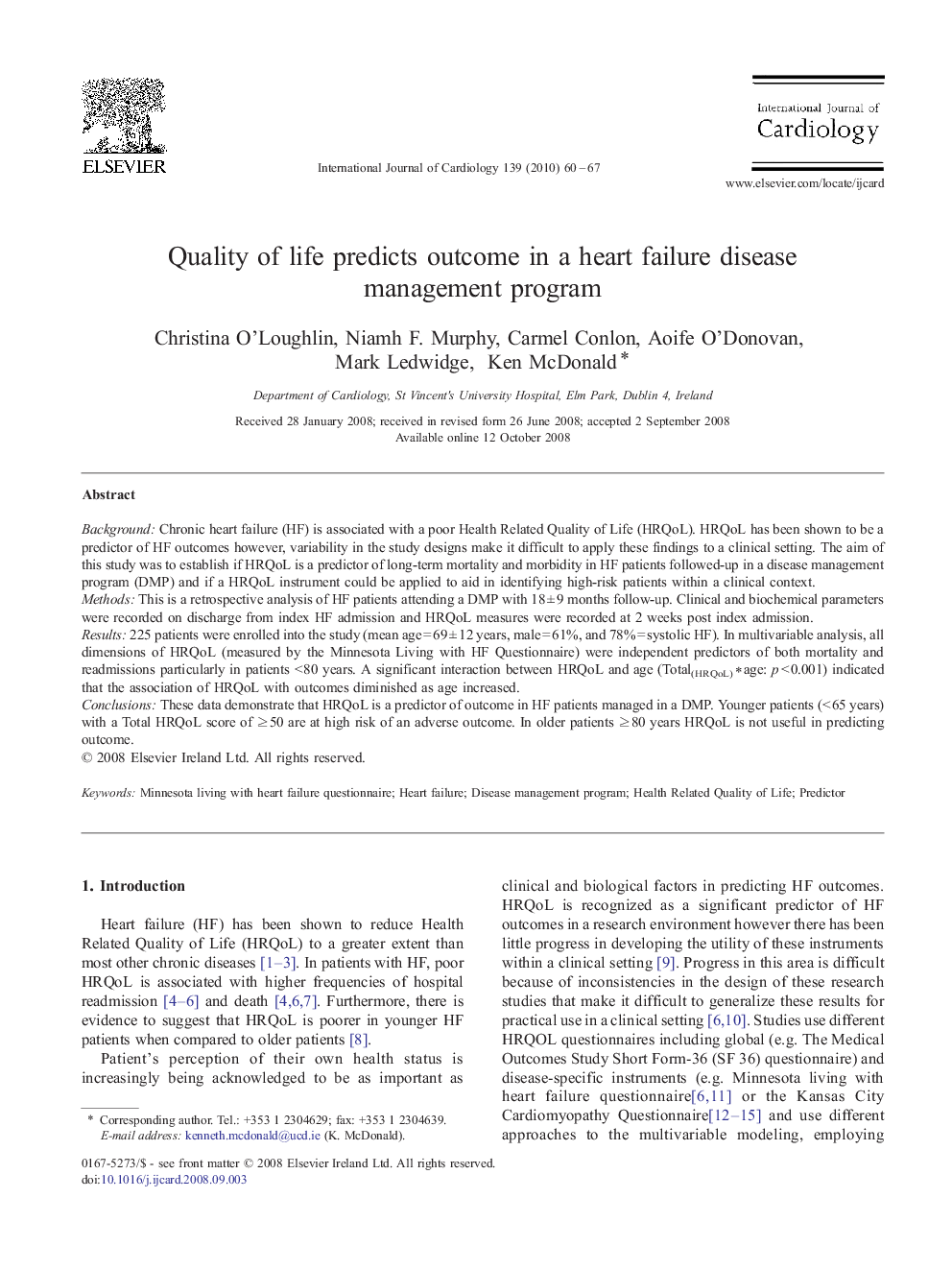| Article ID | Journal | Published Year | Pages | File Type |
|---|---|---|---|---|
| 2932822 | International Journal of Cardiology | 2010 | 8 Pages |
BackgroundChronic heart failure (HF) is associated with a poor Health Related Quality of Life (HRQoL). HRQoL has been shown to be a predictor of HF outcomes however, variability in the study designs make it difficult to apply these findings to a clinical setting. The aim of this study was to establish if HRQoL is a predictor of long-term mortality and morbidity in HF patients followed-up in a disease management program (DMP) and if a HRQoL instrument could be applied to aid in identifying high-risk patients within a clinical context.MethodsThis is a retrospective analysis of HF patients attending a DMP with 18 ± 9 months follow-up. Clinical and biochemical parameters were recorded on discharge from index HF admission and HRQoL measures were recorded at 2 weeks post index admission.Results225 patients were enrolled into the study (mean age = 69 ± 12 years, male = 61%, and 78% = systolic HF). In multivariable analysis, all dimensions of HRQoL (measured by the Minnesota Living with HF Questionnaire) were independent predictors of both mortality and readmissions particularly in patients < 80 years. A significant interaction between HRQoL and age (Total(HRQoL) ⁎ age: p < 0.001) indicated that the association of HRQoL with outcomes diminished as age increased.ConclusionsThese data demonstrate that HRQoL is a predictor of outcome in HF patients managed in a DMP. Younger patients (< 65 years) with a Total HRQoL score of ≥ 50 are at high risk of an adverse outcome. In older patients ≥ 80 years HRQoL is not useful in predicting outcome.
